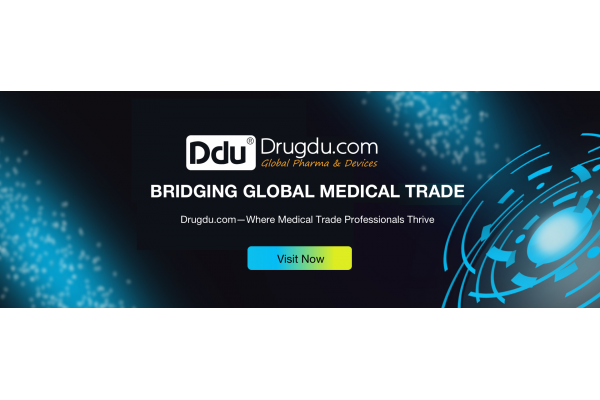【EXPERT Q&A】How to view the compliance of pharmaceutical companies’ records?
May 16, 2025
Source: drugdu
 202
202
Drugdu.com expert's response:
Record compliance in pharmaceutical enterprises is a core element in safeguarding drug quality, ensuring patient medication safety, and maintaining corporate reputation and market competitiveness. The following provides an in-depth analysis from the perspectives of importance, influencing factors, challenges, and coping strategies:
I. The Importance of Record Compliance in Pharmaceutical Enterprises
Regulatory Compliance and Legal Liabilities: Pharmaceutical companies must strictly adhere to regulations such as the "Drug Administration Law" and "Good Manufacturing Practice (GMP)." Record compliance is a core requirement of regulatory oversight. Inaccurate or missing records may expose enterprises to severe consequences, including hefty fines, product recalls, or even license revocation.
Drug Quality and Safety Assurance: Complete and accurate records form the basis for traceability throughout the entire drug production process. For instance, the compliance of records related to raw material procurement, production processes, and inspection data directly impacts whether drug quality meets standards. Any missing records in any环节 (production link) may lead to quality risks.
Corporate Reputation and Market Competitiveness: Compliant records reflect a pharmaceutical enterprise's reputation. In global competition, inadequate compliance may result in the loss of international market access qualifications (such as FDA or EMA certifications). In contrast, enterprises with robust compliance records are more likely to gain the trust of partners and regulatory authorities.
II. Key Factors Influencing Record Compliance in Pharmaceutical Enterprises
Personnel Training and Awareness: Employees' understanding and execution of regulations directly affect the quality of records. For example, if operators lack systematic training, it may lead to non-standard record-keeping or data fabrication.
Technological Systems and Data Management: The reliability of electronic record systems and data integrity (such as audit trails and electronic signatures) serve as technical guarantees for compliance. System vulnerabilities or lack of validation may result in data tampering or loss.
Quality Management System: From document management to deviation handling, the quality management system must cover the entire lifecycle of records. For instance, the timeliness and accuracy of deviation records directly impact the reliability of risk assessments.
III. Challenges Facing Record Compliance in Pharmaceutical Enterprises
Frequent Regulatory Updates: Domestic and international regulations (such as ICH guidelines and data integrity requirements) are constantly evolving. Enterprises need to continuously invest resources to adapt to new standards.
Global Regulatory Differences: Regulatory requirements vary across different countries and regions. Pharmaceutical companies must comply with multiple sets of regulations simultaneously, increasing compliance costs and complexity.
Data Fabrication and Human Errors: Some enterprises may engage in record fabrication to pursue efficiency or conceal problems. Additionally, human negligence (such as omissions or clerical errors) is also a common risk.
IV. Strategies for Enhancing Record Compliance in Pharmaceutical Enterprises
Strengthening Training and Cultural Development: Conduct regular regulatory training to ensure employees are familiar with GMP and data integrity requirements.
Establish a "compliance-first" corporate culture and encourage employees to report issues proactively.
Upgrading Technological Systems: Adopt electronic record systems that comply with FDA 21 CFR Part 11 or EU GMP Annex 11.
Implement data integrity tools (such as audit trails and permission management) to reduce the risk of human intervention.
Improving the Quality Management System: Establish a comprehensive document lifecycle management process to ensure compliance from record generation to archiving.
Strengthen internal audits and third-party certifications (such as ISO 9001) to promptly identify and rectify issues.
Introducing Intelligent Technologies: Utilize AI and blockchain technologies to achieve automated generation and tamper-proof storage of records.
Employ data analysis tools to monitor record anomalies in real-time and provide early warnings of potential risks.
V. Conclusion
Record compliance in pharmaceutical enterprises is not only a legal obligation but also the cornerstone of sustainable corporate development. Facing regulatory pressures and market competition, pharmaceutical companies need to construct a compliance system from multiple dimensions, including personnel, technology, and management, and integrate compliance concepts into daily operations. Only in this way can they ensure drug quality and safety while winning the long-term trust of regulatory authorities, customers, and patients.

Read more on
- 【EXPERT Q&A】What factors should be given priority consideration in the benefit-risk assessment of medical devices? March 2, 2026
- 【EXPERT Q&A】How can the compliance assessment of in vitro diagnostics (IVDR) in the European Union be carried out in a standardized and efficient manner? February 27, 2026
- 【EXPERT Q&A】How to apply for the classification and definition of medical devices? February 25, 2026
- 【EXPERT Q&A】The US FDA has implemented a brand-new QMSR system regulation for medical devices. What significant changes will occur in the corresponding on-site inspections? February 23, 2026
- 【EXPERT Q&A】How is a drug safety evaluation experiment conducted? February 20, 2026
your submission has already been received.
OK
Subscribe
Please enter a valid Email address!
Submit
The most relevant industry news & insight will be sent to you every two weeks.



